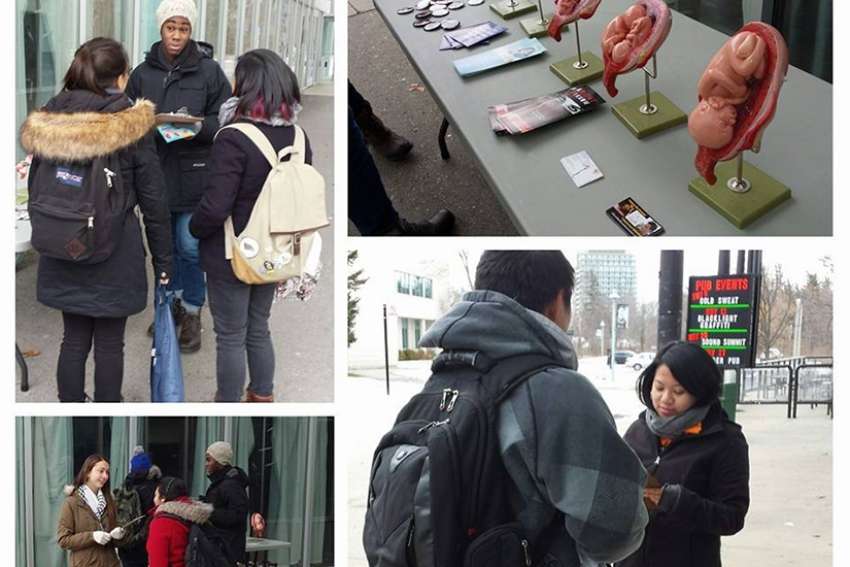John Carpay, president of the Justice Centre for Constitutional Freedoms, said the court’s “erroneous decision, if left to stand, will make it much more difficult for students with minority viewpoints to participate in the free exchange of ideas on campus.”
“To make matters worse, these students are still conscripted into paying membership dues to these student unions, despite not being able to receive equal access to services provided by these unions,” he said.
Ontario Superior Court of Justice Judge J. Perell dismissed the lawsuits launched by the University of Toronto at Mississauga (UTM) Students for Life (SFL) against the UTM Students’ Union; the pro-life group Speak for the Weak against the Student Association at Durham College and University of Ontario Institute of Technology; and the Men’s Issues Awareness Society against the Ryerson Students’ Union. The three cases, all involving bans implemented in 2015, were heard together on Jan. 24.
In all three cases, the judge held the groups’ freedom of speech and association was not violated by denial of club status, because they could still operate and attract members despite lacking access to various club privileges, such as being able to book campus facilities, have an information table during club week and put up posters.
Perell agreed with the Justice Centre’s position that the court had jurisdiction to examine whether the student unions followed their own rules. However, even though he recognized the students paid mandatory dues, he said club status is not an entitlement but a privilege and the student unions, as private associations, have the right to make their own policies for selecting who gets club status.
According to the Justice Centre, the Durham College Students’ Association only considers official status for clubs that “support abortion” because they are “equity-seeking.”
The Ryerson Men’s Issues Awareness Society, established in 2015 to discuss issues that “disproportionately affect men and boys such as higher rates of homelessness, workplace injuries and failure in school,” was denied status because some argued it would make women on campus feel unsafe.
Perell noted the Ryerson Student Union has a “strong ideological and political orientation,” including describing itself as a “pro-feminist organization” and that it had the right to make the decision on club membership according to its policies.
In the case involving UTM-SFL, the judge said it was “understandable” that the applicants would be “disappointed, aggrieved, offended and angry” about how the Students Union handled their request to renew their club status, but they “have attributed to discrimination, censorship, banishment and bad faith what is more aptly attributable to the SU’s incompetence.”
“It was not surprising but very disappointing,” said Chad Hagel, president of UTM Students for Life. “It’s not unexpected. We had been following similar cases.”
Though Hagel said they were “a little perturbed” by the judge’s comments, “we’re very calm and we’re taking it bit by bit.”
“It’s too early to say whether there will definitely be an appeal,” said Marty Moore, a lawyer with the Justice Centre for Constitutional Freedoms.
Moore said the decisions contain some contradictions, such as chalking up inappropriate behaviour by the UTM SU to incompetence.
While not governed by the Charter, the various student unions did have clauses in their constitution respecting religious freedom and conscience rights which the Justice Centre argued they did not follow.


